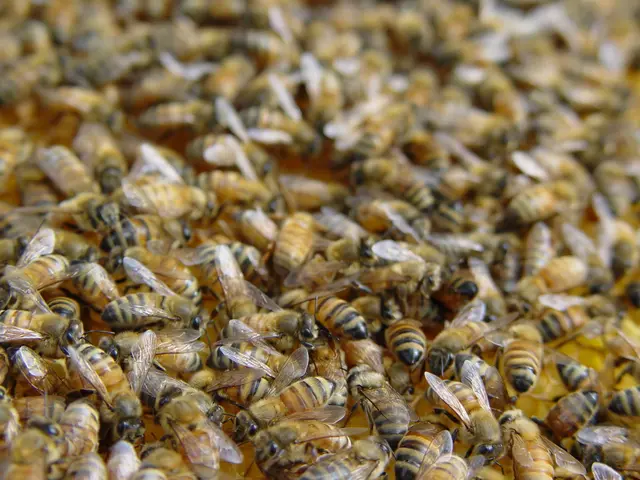MRSA Colonization: Spread, Prevention Methods, and Related Info
Cutting-edge Info on MRSA:
Did you know that around 1 in 30 people carry MRSA bacteria on their skin without showing symptoms of MRSA infection?
MRSA colonization, or the presence of Methicillin-resistant Staphylococcus aureus (MRSA) bacteria, can linger for weeks, months, or even years without causing any trouble. However, it does pose a concern for healthcare professionals due to its potential for spreading and causing infections, especially in shared spaces like hospitals and nursing homes.
You might find MRSA bacteria in moist areas such as the nose, throat, groin, armpits, skin folds, and perineal area. Although the bacteria itself may not cause any symptoms, it's crucial to take precautions since it can weaken your immune system and make you more susceptible to infections. In healthcare settings, persons with MRSA colonization could unknowingly infect others with the bacteria, potentially leading to harmful MRSA infections that are resistant to common antibiotics like methicillin, penicillin, amoxicillin, and oxacillin.
MRSA spreads through close contact with someone who has an MRSA infection or colonization, sharing equipment or supplies that haven't been properly cleaned, environmental contamination, and even household surfaces. The good news is that proper hygiene can help reduce the chances of MRSA colonization and infection.
Stay ahead of the game by following these hygiene tips:
- Regularly wash your hands and take showers with antiseptic soap
- Keep wounds covered and clean
- Avoid sharing towels, razors, clothing, and bedding
- Wash clothes, sheets, and towels in hot water and dry them on high heat
- Disinfect surface areas frequently
In medical settings, medical professionals might screen people for MRSA through swabbing common infection areas. When detected, they may prescribe nasal creams, body wash, and shampoo to help rid the body of MRSA bacteria. Typically, you'd use these products for 5 to 10 days.
However, MRSA colonization can sometimes vanish on its own without treatment, but this isn't always the case. The natural resolution of MRSA colonization is not guaranteed and depends on several factors like your health, hygiene practices, and exposure to antibiotics[4]. Keep an eye out for signs of a skin infection, such as pain, redness, pus, swelling, and warmth, especially in areas with cuts or abrasions.
So, taking diligent care of yourself and recognizing the signs of infection are the keys to managing MRSA and staying healthy!
Fun Facts:
Did you know that chlorine can kill MRSA bacteria? But beware, a lower concentration of chlorine can sometimes promote MRSA growth[1]. Also, MRSA colonization may persist in individuals, but it doesn't necessarily mean you'll carry it permanently[4]. Maintaining good hygiene and following infection control guidelines in both personal and healthcare settings is essential for preventing MRSA spread and infection.
Sources:
[1] Antibiotic resistance: What is MRSA? Mayo Clinic Staff. (2021, January 8). Mayo Clinic. https://www.mayoclinic.org/diseases-conditions/mrsa/symptoms-causes/syc-20356306
[4] CDC. (2022, March 28). MRSA in the community. Centers for Disease Control and Prevention. https://www.cdc.gov/mrsa/community/index.html
- MRSA, a superbug known as Methicillin-resistant Staphylococcus aureus, can be an invisible threat, as one in every 30 people might unknowingly carry it on their skin without showing symptoms.
- Despite not causing symptoms, MRSA colonization can persist for weeks, months, or even years, potentially posing a concern for spreading and causing infections, particularly in healthcare settings like hospitals and nursing homes.
- Adhering to health and wellness practices, such as regular handwashing, keeping wounds clean, and disinfecting surfaces, can help reduce the chances of MRSA colonization and infection, which could lead to chronic diseases and weaken our immune system.
- While MRSA can affect physical health, it's also important to prioritize mental health and ensure proper nutrition, as they play crucial roles in overall well-being and resistance to infectious diseases like MRSA.








